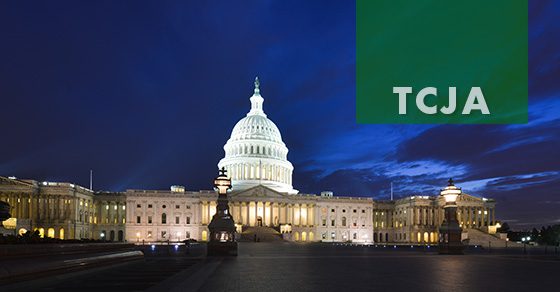What Might Be Ahead as Many Tax Provisions Are Scheduled to Expire?

Buckle up, America: Major tax changes are on the horizon. The reason has to do with tax law and the upcoming elections.
Our current situation
The Tax Cuts and Jobs Act (TCJA), which generally took effect in 2018, made sweeping changes. Many of its provisions are set to expire on December 31, 2025.
With this date getting closer each day, you may wonder how your federal tax bill will be affected in 2026. The answer isn’t clear because the outcome of this November’s presidential and congressional elections is expected to affect the fate of many expiring provisions. A new political landscape in Washington could also mean other tax law changes.
Corporate vs. individual taxes
The TCJA cut the maximum corporate tax rate from 35% to 21%. It also lowered rates for individual taxpayers, with the highest tax rate reduced from 39.6% to 37%. But while the individual rate cuts expire in 2025, the law made the corporate tax cut “permanent.” (In other words, there’s no scheduled expiration date. Tax legislation could still change the corporate tax rate.)
In addition to lowering rates, the TCJA revised tax law in many other ways. On the individual side, standard deductions were increased, significantly reducing the number of taxpayers who benefit from itemizing deductions for certain expenses, such as charitable donations and medical costs. (You benefit from itemizing on your federal income tax return only if your total allowable itemized write-offs for the year exceed your standard deduction.)
In addition, through 2025, certain itemized deductions are eliminated. Others are more limited, including those for home mortgage interest and state and local tax (SALT).
For small business owners, one of the most significant changes is the potential expiration of the Section 199A qualified business income (QBI) deduction. This is the write-off for up to 20% of QBI from noncorporate pass-through entities, including S corporations and partnerships, as well as from sole proprietorships.
The expiring provisions will affect many taxpayers’ tax bills in 2026, unless legislation extending them is signed into law.
Possible scenarios
The outcome of the presidential election in less than five months, as well as the balance of power in Congress, will determine the TCJA’s future. Here are four possible scenarios:
- All of the TCJA provisions scheduled to expire will actually expire at the end of 2025.
- All of the TCJA provisions scheduled to expire will be extended past 2025 (or made permanent).
- Some TCJA provisions will be allowed to expire, while others will be extended (or made permanent).
- Some or all of the temporary TCJA provisions will expire — and new laws will be enacted that provide different tax breaks and/or different tax rates.
How your tax bill will be affected in 2026 will partially depend on which one of these scenarios becomes reality and whether your tax bill went down or up when the TCJA became effective back in 2018. That was based on a number of factors including your income, your filing status, where you live (the SALT limitation negatively affects more taxpayers in certain states), and whether you have children or other dependents.
Your tax situation will also be affected by who wins the presidential election and who controls Congress. Democrats and Republicans have competing visions about how to proceed when it comes to taxes. Proposals can become law only if tax legislation passes both houses of Congress and is signed by the President (or there are enough votes in Congress to override a presidential veto).
The tax horizon
As the TCJA provisions get closer to expiring, it’s important to know what might change and what tax-wise moves you can make if the law does change. We’ll keep you informed about what’s ahead. We’re here to answer any questions you may have.
Tags
Categories
Services
- Business Advisory Services (141)
- Audit & Assurance (9)
- Business Valuation (16)
- Estate & Trust (26)
- Fraud Examination (15)
- Litigation Support (11)
- Tax Planning & Compliance (320)




